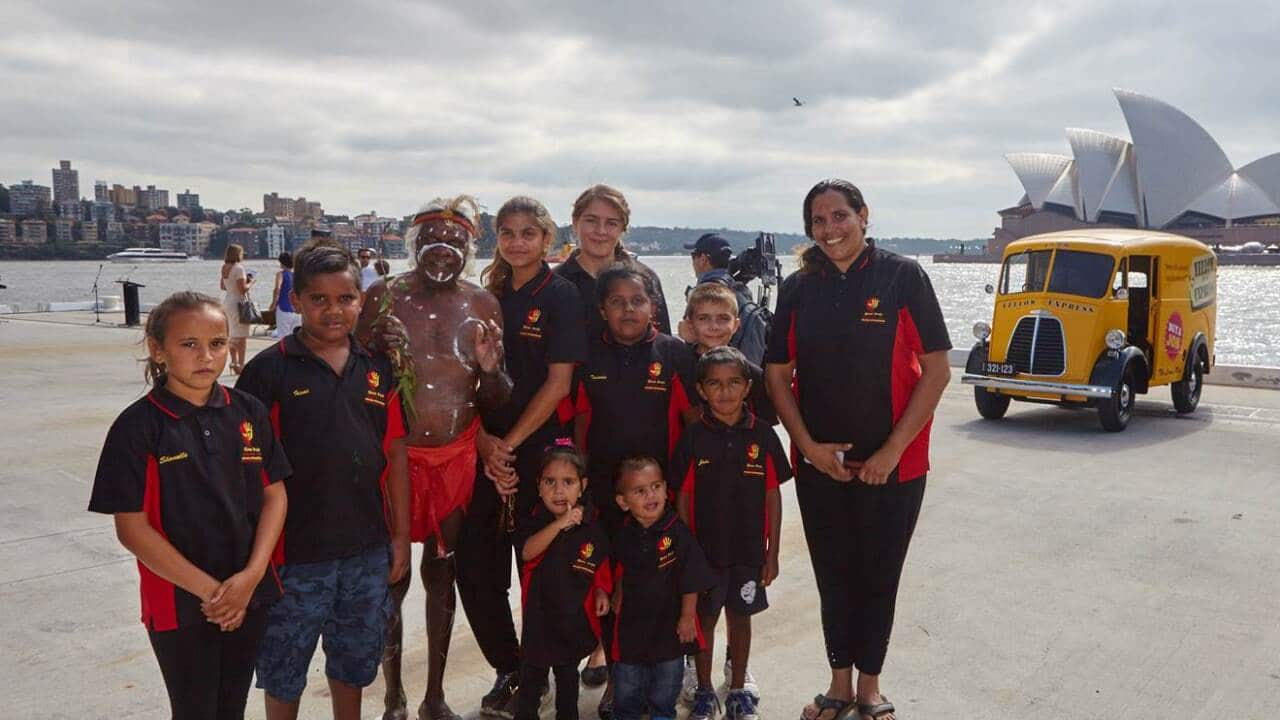Mount Druitt Indigenous Choir says being asked to sing at 2016 Australia Day festivities is a “wonderful” step towards a more inclusive Australia.
“Being asked to perform is wonderful because of the acknowledgment of our Aboriginal language and our families,” the choir’s coordinator Dave Armstrong told NITV.
I look forward to the day when it becomes normal to speak in language.
“The Mount Druitt Indigenous Choir has a song, ‘Dreaming of My Past, Dreaming of My Present, Dreaming of My Future’. We think this acknowledgement is great for our present and future, and by singing the [Dharug] language we are honouring our elders past and present.”
The children’s choir sings many of their songs in the language of Dharug country, now known as Mount Druitt in Western Sydney where they have been brought up.
It was created in 2010 to empower disadvantaged Indigenous youth, strengthen their connection to culture and revive the Dharug language.
Five years later, 40 children have performed more than 150 times at events spanning from NAIDOC Week to an international judo competition.
The official program for Australia Day 2016 was launched this week and promises more celebrations of Indigenous Australia.
Multiculturalism Minister John Ajaka said the day was a time to reflect on unity in diversity.
“It is also a time to acknowledge our Indigenous people and the significant contribution of our multicultural communities,” he said.
The schedule opens with a WugulOra (one mob) Morning ceremony at Barangaroo Reserve that will feature a performance by pop diva Jessica Mauboy at the top of the Sydney Harbour Bridge.
Clarence Slockee, event coordinator for the WugulOra Ceremony, told media the ceremony was an opportunity to grow reconciliation between Indigenous and other Australians.
“January 26 has a complexity of meaning for our First Nations Peoples,” he said.
“The first event of the day at Barangaroo Reserve will be an opportunity to come together, to be reminded that we are the world’s oldest living culture, to reflect on our shared history and to contemplate an inclusive future for all Australians.” January 26 marks the day the British arrived on the shores of the continent. Many Indigenous Australians recognise the day as the time they lost their land, many of their people and cultures. Some refer to it as Survival Day, to celebrate their survival through colonisation. Others have named it Invasion Day, seeing it as the time the British took over their lands without permission.
January 26 marks the day the British arrived on the shores of the continent. Many Indigenous Australians recognise the day as the time they lost their land, many of their people and cultures. Some refer to it as Survival Day, to celebrate their survival through colonisation. Others have named it Invasion Day, seeing it as the time the British took over their lands without permission.

Pop diva Jessica Mauboy will also be performing at the top of the Sydney Harbour Bridge. Source: AAP
An Aboriginal smoking ceremony, conducted by Aboriginal elders by Sydney Harbour, and a Sunset Ceremony to farewell the grandfather, the sun, will also take place on the day.
Mount Druitt’s Indigenous Choir coordinator Mr Armstrong says he imagines a time when Indigenous culture and language is a part of mainstream Australia. “We can’t turn back time but we can choose to live and let live,” he said.
“We can’t turn back time but we can choose to live and let live,” he said.

Mount Druitt Indigenous Choir performing at the Dee Why Christmas Carols in 2012. Source: Mount Druitt Indigenous Choir
“I look forward to the day when it becomes normal to speak in language.”
Follow nitv.org.au for more information about Indigenous events and stories in the lead up to January 26.

